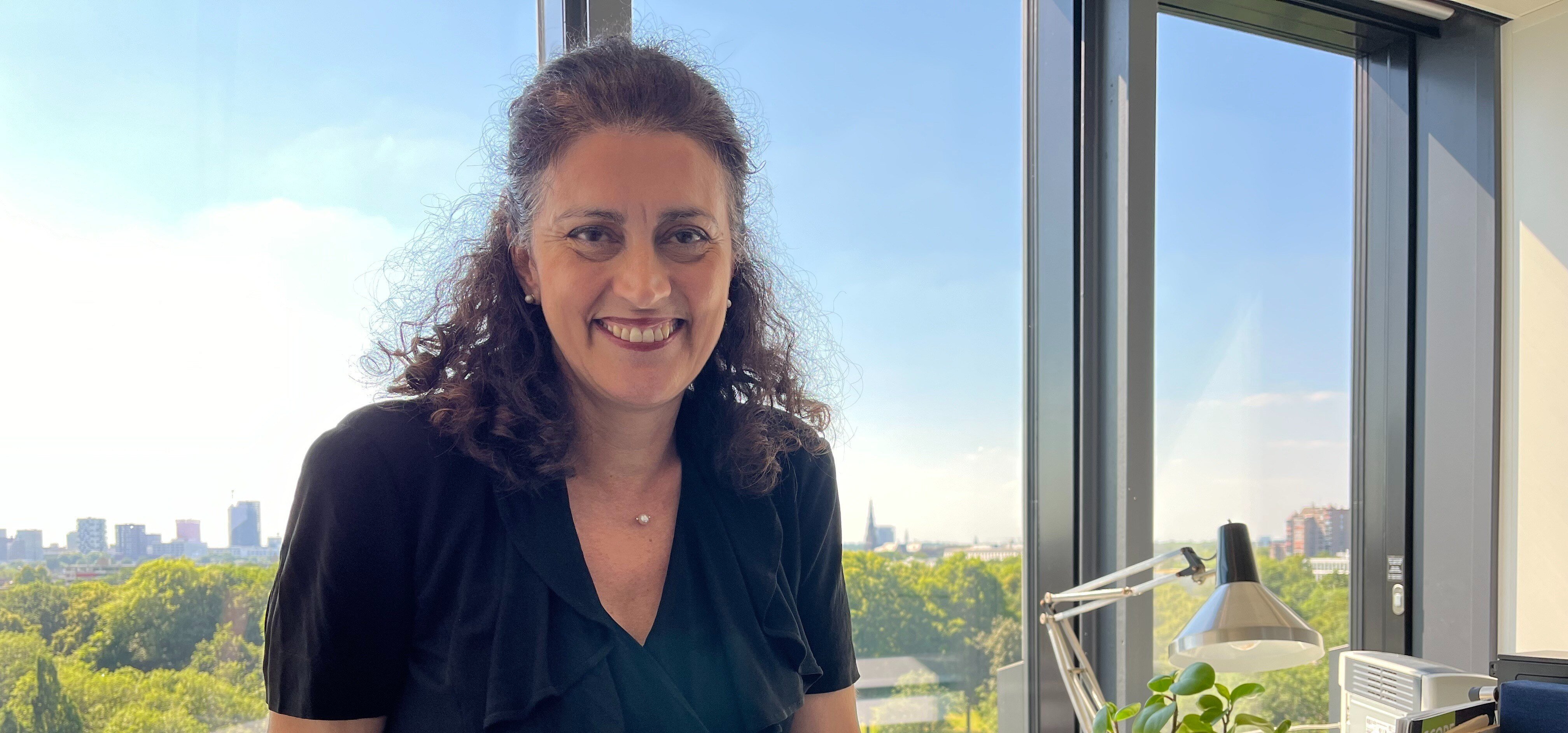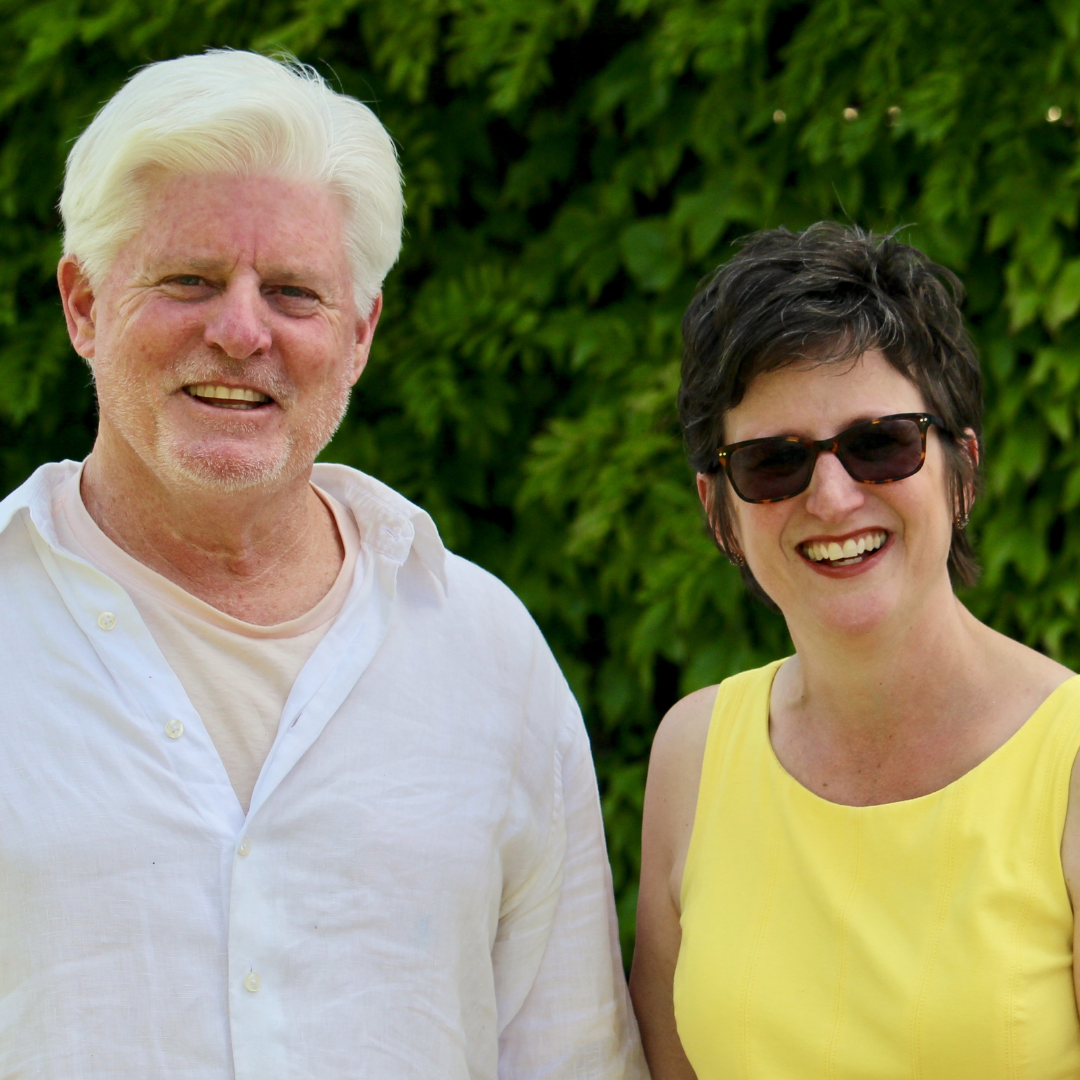



You may not know Evangelia Demerouti by name, but it’s impossible not to know about the Irene Curie Fellowship program, the radical initiative at Eindhoven University of Technology. She is one of the initiators who spearheaded the 2019 policy to hire only female professors.
As a TU/e professor for nearly 15 years, the Diversity Officer since 2017 and the current president of the European Association of Work and Organizational Psychology, Demerouti has gone above and beyond to spur gender diversity change with her research. She is a well-known figure not only on campus but around Europe for her research and her tenacity to win a place for more women at TU/e.
Now, with the Irene Curie Fellowship initiative showing clear success, she is pushing beyond diversity and carving a path for better inclusion.
The 2019 hiring policy put TU/e on a world stage, yet, in person, Evangelia Demerouti is a modest person who doesn't fully acknowledge the change she created. She is a role model to many women and at a recent conference, people who admire her research asked to take selfies with her.
However, Demerouti is an unlikely figure at TU/e. Trained in Greece and Germany and with a classical psychology background, she completely changed her trajectory and applied herself to work and organizational psychology when she moved to the university in 2009.
A major disruption to the system at TU/e
Beginning in mid-2019, the Irène Curie Fellowship Program gave female applicants exclusive priority over male applicants for six months, after which positions could be opened to all genders. Women hired under this fellowship were – and still are – given an additional research budget of 100,000 euros to spend on whatever they want.
This policy aimed to achieve a greater balance between men and women in academic positions by attracting and supporting female faculty.
The initiative came about in 2019, with fresh money available from the government to support and hire more people in technology and science (so-called “sector money”). At the time, there were more than 50 vacancies, and the TU/e saw the opportunity to hire more people than normal with this governmental support.
“I was the Diversity Officer and we came up with a plan to hire 50% women in these positions,” Demerouti recalls. “We went to a meeting with all the deans of the university to discuss the suggestion and they said, ‘Why 50/50? We can do 100%.’”
That’s when the controversy started.
Media coverage exploded and the proposal met legal obstacles of equal opportunity. The plan was rejected because of this, but the court hinted at how to revise the plan to make it work.
The bold idea was revised and eventually, it was enacted.
“It is an extreme measure, but it can only be applied in places where there is an extreme imbalance,” Demerouti explains. “We can apply it to the faculties and positions where there are too few women.”
The program has been an unprecedented success, attracting top female talent and the number of female faculty has grown at a fast rate.
The 100% women hiring target for the first year resulted in 50/50 hiring. Five years of this initiative and it is still being implemented. The male-female ratio of new academic staff is now fifty-fifty according to recent statistics and females make up 35% of professors.
The policy has enacted real change. The numbers reflect that, but Demerouti reminds us that there is still so much more that can’t be measured. These new hires under the fellowship go on to use the funding to do many things, from creating a new lab to funding travel to hiring new research assistants and buying materials.
“This drastic intervention helped people to understand how to think about diversity. Why was it necessary to do something so drastic? Why didn't we do this before?” Demerouti says.
The policy was met with some strong opinions and plenty of naysayers. But over time, it has found its naysayers turn into supporters as they've seen positive progress from this policy. After all, no one is given a free handout by this program. They have to earn it.
"We don't do a favor to anyone," she says.
Going beyond a 50/50 ratio
The 50/50 ratio that has been achieved was not an arbitrary target.
“The literature shows that when minority groups are less than 30%, they don't dare to say their opinion and fully contribute. They feel the pressure of the majority. Then, you don't profit from their knowledge,” Demerouti explains about the 50/50 target.
The fellowship goes beyond a target number and also provides mentorship for newly hired women to help them find their way and help them grow.
This is because we don’t just need more women, we need high-level, senior women who are part of the decision-making process on money, strategy and policy. This is important even if you already have a lot of women elsewhere.
A psychologist in a technical setting
It was not always an easy path for Demerouti, though. In the beginning, a psychologist in a technical university was not common.
TU/e has multidisciplinary studies consisting of operations management, information systems and human performance, all important parts of operational processes. In Demerouti’s department, they investigate how they can implement in the field all of the technological innovations that come out of the university.
“They tried to change my direction. In the beginning, some colleagues told me that it was better to do something else. In the end, I said, ‘I have a well-running shop that has a lot of impact in science and practice, and in my view, it fits here. I will not close it.’ In the end, I didn't have to change much. I only had to understand and integrate.”
Although an unlikely place, it was an exciting move because the environment fit into her research on employee well-being and on gender diversity.
“I didn't know how dynamic the context was here,” she says. “For an organizational psychologist who had been all those years in classical psychology, there was a lot going on and it taught me a lot.”
The technical environment changed her way of thinking and her way of researching.
“How can we improve the process? You need to have a solution. I need to understand a process so that I'm able to improve it and find the solution to the problem. It taught me that I have to look at my research from that lens.”
Now she also focuses on intervention research to improve employment conditions, reduce burnout, improve performance and productivity and, of course, increase diversity.
Tell your story
Seeing what she has accomplished in her tenure at TU/e, it is hard to believe that Demerouti – like many women – was originally handicapped by doubt. She didn't apply to the position until urged to do so by a former male colleague.
Her struggle to apply for the position is reflected in many women. While men see a job description and treat the job requirements as a like-to-have list, women hesitate to apply. Women should embrace applying for positions even if they don’t check all the boxes.
She urges other women to “just tell your story” and be your authentic self. It helps other people to hear the story and it frees us to define our unique path. By understanding our strengths, we can adjust a job to fit our capabilities and preferences. We need to remember that not every position is one-size-fits-all. Rather, it’s what we make of it.
What’s next for her research?
Demerouti is now focused on more ways to increase inclusion now that the number of female faculty is boosted.
“First you have to bring them in and then you have to take care that they are included,” she says.
TU/e offers training about inclusive leadership, promoting employee empowerment and teamwork and job crafting. Demerouti also gives free online training for some of these subjects so more people can take advantage of the training and directly apply the learnings to their roles. You can see her online workshops HERE.
Demerouti also has a major goal to create a diversity office that can offer support and advice, as well as set up a neurodiversity support system.
What can we all do to improve diversity?
Demerouti has a few ways that everyone can work towards more diverse workplaces, from writing better job descriptions that appeal to both genders to seeking out talented women within your network and at conferences.
Like many Fe+male Tech Heroes, Evangelia Demerouti is not looking for a reward; she sees the change she helped initiate as reward enough.
“Don't look at rewards. Look at your puzzle,” she urges. “The rewards will come and if they don't come, you will still be happy that you solved your puzzle and did something for society.”